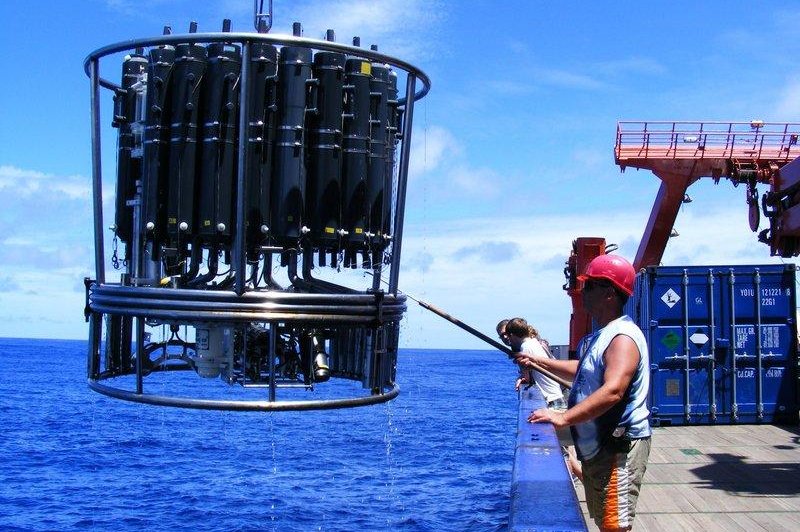Ocean monitoring efforts suggest the planet's oceans are losing more oxygen than predicted by computer models. Photo by Martina Lohmann/GEOMAR
June 11 (UPI) -- Over the last 50 years, the amount of oxygen in the world's oceans has declined by 2 percent. Models designed to simulate the phenomenon, however, have failed to reproduce such significant losses.
Now, scientists have identified the blind spots in current models, as well as drivers of ocean deoxygenation ignored or underestimated by popular simulations.
One of the biggest drivers of ocean deoxygenation is global warming. As increases in the amount of CO2 have encouraged a greenhouse gas effect, heating the atmosphere, the ocean has warmed, too. Warmer water can't absorb as much gas.
Rising ocean temperatures can explain approximately 20 percent of the ocean deoxygenation measured over the last half-century, and the current computer models account for this type of oxygen loss.
But warming affects more than water's ability to hold gas. It also alters circulation patterns. Ocean circulation is complex and difficult to model, and as such, shifts in ocean circulation -- and their consequences on other ocean behaviors -- are difficult to model.
"Many models have problems to describe this effect realistically, because transport processes are often not resolved well enough or reproduced incorrectly," Lothar Stramma, scientist at the GEOMAR Helmholtz Center for Ocean Research Kiel in Germany, said in a news release.
The latest study -- published in the journal Nature Geoscience -- showed that shifts in ocean circulation and the effects on important biological, chemical and physical processes are underestimated by current ocean deoxygenation models.
"We often lack the data or the knowledge about many processes that interact in the ocean's response to global warming," said Andreas Oschlies, an expert in modeling biogeochemical processes. "Our study shows that previous models significantly underestimate the effects of this interaction, at least on the oxygen distribution."
If researchers are going to accurately predict how rising temperatures will effect the oceans in the future, they need to properly model how they've changed in the last 50 years. And to do so, researchers say more studies are needed to examine the interactions between rising ocean temperatures, circulation shifts and the effects on important biogeochemical processes.
"We need multidisciplinary process studies to better understand the delicate balance of oxygenation and oxygen consumption in the ocean," said researcher Andreas Oschlies.
By improving oxygen deoxygenation models, scientists would also be able to better predict how Earth's oceans will interact with rising levels of atmospheric CO2.
"Oxygen is ideal for calibrating models that calculate the uptake of carbon dioxide by the ocean. So, at the same time, we would improve our knowledge of the carbon cycle," said Oschlies.















